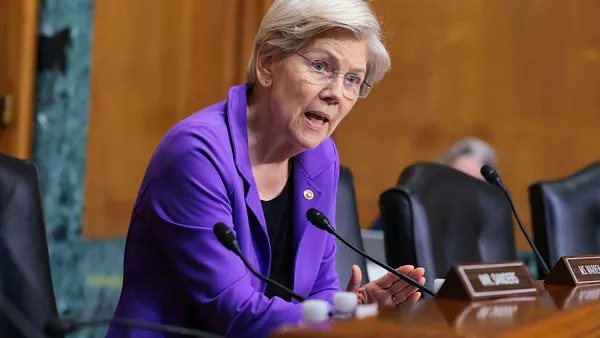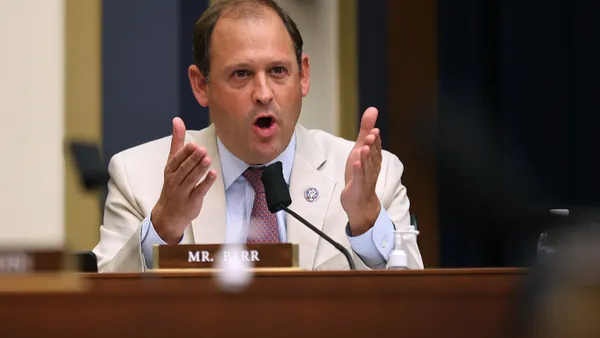Editor's note: The following is a guest post from Tony Repanich, the president and chief operations officer at Shield Compliance, a compliance management platform for high-risk banking. He has 25 years of commercial and retail banking experience.
Passage of the Secure and Fair Enforcement (SAFE) Banking Act in the House of Representatives is undoubtedly the biggest step forward for the cannabis industry as it pushes toward greater legitimacy, and ultimately, federal legalization. It marks a major victory for marijuana-related businesses (MRBs) in states where cannabis is legal. And it creates growth opportunities for financial institutions relegated to the sidelines of this lucrative industry out of fear of federal prosecution.
Although the SAFE Banking Act is still a way off from becoming law (passage in the Republican-controlled Senate is "iffy" at best), banks should view the House vote as a call to action. As I travel around the country speaking with financial institutions about cannabis banking, I've grown all too familiar with the reasons why many won't even contemplate getting involved. But with greater public acceptance of cannabis, growing momentum for state-level legalization, and now federal progress on the issue, financial institutions should take steps to gain a first-mover advantage in this fast-growing market.
This doesn't necessarily mean putting an "open for business" sign on the door today. Rather, banks should begin the process of understanding how the cannabis industry works, the compliance requirements involved, the operational impacts to the bank, and ultimately how serving this industry can put the financial institution in a better position to compete for new sources of low-cost deposits.
Over the past several years, financial institutions have been under enormous pressure to replace wholesale and brokered deposits with more core funding that can be obtained at a lower cost. Offering cash incentives to attract new checking accounts has been a popular strategy. But as any banker knows, competition for the same potential customer is intense.
High-risk banking programs, such as cannabis banking, offer a less crowded battlefield. If the financial institution is willing to learn how the industry works, how MRBs operate, and the associated regulatory requirements, it will be able to earn lucrative new customer relationships with far less competition. And, because customers in these industries don't traditionally have easy access to banking services, any added costs to the financial institution can be offset by higher service charges. The difference between what smaller banks pay in deposits and what they charge in loans can represent 70% to 80% of their total revenue, so every basis point that can improve that spread goes straight to the bottom line.
Having spent most of my career as an executive at a community bank, I know financial institutions don't want to be the first to take on something new. Fortunately, pioneering financial institutions have been serving this industry for several years and are passing multiple exam cycles. Banks entering the industry now don't have to write the playbook from scratch.
Banks serving the cannabis industry have a twofold responsibility. First, the compliance department must be deeply engaged in the day-to-day activities of MRB customers. Second, financial institutions serving cannabis customers must find new ways to organize and reconcile customer data with outside data sources to mitigate risk. These commitments are a significant shift for most compliance departments, which is why bank leadership and their boards must set clear business objectives around why they are serving high-risk customers and remain disciplined in their approach.
As cannabis legalization efforts gain traction in Congress, financial institutions will be in a much stronger position to provide banking services to MRBs. The ultimate reward of gaining new sources of low-cost deposits with a lot less enemy fire is powerful. Waiting too long to get involved, however, could force banks to compete for customers in yet another crowded battlefield.
Repanich can be reached at [email protected].














